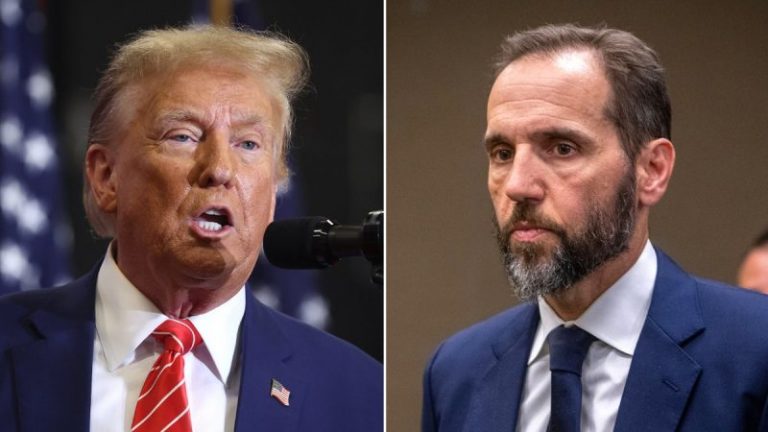A federal appeals court has rejected a request to block Special Counsel Jack Smith from accessing former President Trump’s then-Twitter feed as part of his election interference case.
The U.S. Court of Appeals for Washington, D.C., ruled on the matter and denied further review. The decision comes after an appellate panel had rejected the original request.
Twitter, now ‘X,’ had initiated the appeals, seeking to block special counsel access to the records the company held.
Smith had noted he could have gotten the material from the National Archives, which gained the material after Trump left office, but that would have triggered notice to Trump, so a search warrant was requested through the company under seal and with a non-disclosure notice. That, in turn, prevented Trump from raising any executive privilege claims over the digital communications.
The four conservative judges on the appeals court dissented and would have granted en banc review.
Judge Rao, a Trump bench appointee, wrote a statement, saying the executive privilege claims should have been addressed.
‘The absence of a presumptive privilege particularly threatens the Chief Executive when, as here, a third party holds presidential communications. See Mazars, 140 S. Ct. at 2035. And to be sure it aggrandizes the courts, which will have the power to determine whether executive privilege will be considered before its breach. Without a presumption for executive privilege, new questions will invariably arise, particularly because nothing in the panel’s opinion is limited to a former President. What if, in the course of a criminal investigation, a special counsel sought a warrant for the incumbent President’s communications from a private email or phone provider? Under this court’s decision, executive privilege isn’t even on the table, so long as the special counsel makes a showing that a warrant and nondisclosure order are necessary to the prosecution. And following the Special Counsel’s roadmap, what would prevent a state prosecutor from using a search warrant and nondisclosure order to obtain presidential communications from a third-party messaging application? And how might Congress benefit from this precedent when it seeks to subpoena presidential materials from third parties in an investigation or impeachment inquiry?’
‘Upon consideration of appellant’s petition for rehearing en banc, the response thereto, the amicus curiae brief filed by Electronic Frontier Foundation in support of rehearing en banc, and the absence of a request by any member of the court for a vote, it is ordered that the petition be denied,’ the ruling states.
The former president and 2024 GOP presidential front-runner can now ask the Supreme Court to review the matter.
Attorneys for the company, now named X Corp., attempted to block and delay the effort in January and February, leading one federal judge to speculate that X owner and one-time CEO Elon Musk was attempting to ally himself with Trump.
The social media giant ultimately lost the struggle, however, and was forced to hand over an extensive list of data related to the ‘@realdonaldtrump’ account, including all tweets ‘created, drafted, favorited/liked, or retweeted.’
The handover also included searches on the platform surrounding the 2020 election, devices used to log into the account, IP addresses used to log into the account, and a list of associated accounts.
Smith plans to use data from the cellphone that Trump used in his final weeks in office, including data revealing when Trump’s phone was ‘unlocked and the Twitter application was open’ on Jan. 6, 2021.
Unsealed court filings in August showed that Smith’s team obtained location data and draft tweets in addition to the former president’s messages.



